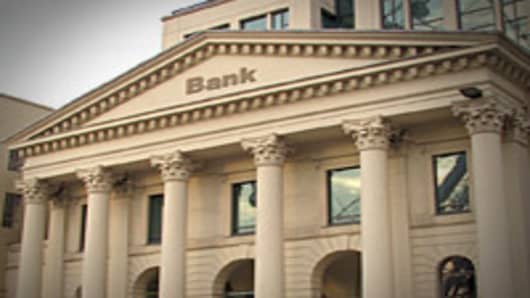President Obama's proposed crackdown on big banks could end up slowing the economic recovery and spark a major selloff in stocks, some experts said.
Stocks already were down sharply in response to the president's proposal on Thursday to limit risk among financial giants, with the stocks of big Wall Street banks taking the biggest hit.
Strategists saw Obama's proposal as attempt to counter recent political losses—especially the GOP victory on Tuesday in the Massachusetts Senate vote. But the fear is that the president's strategy will backfire and make things worse not only on Wall Street, but Main Street as well.
"I'm starting to call him Barack O-backwards because every one of his viewpoints on every issue is 180 degrees opposite from where it should be," said Chip Hanlon, president of Delta Global Advisors in Huntington Beach, Calif.
Hanlon, who also runs a right-leaning political organization called RedCounty.com, said the proposal to cut bank ties to hedge funds and limit the growth of major Wall Street firms will hamstring efforts to grow the economy.
"We've got one chance to handle all this debt that we've built up in the country, and that is growth," he said. "His ideas to put a straightjacket on the banks and the key to funders of business in this country will once again be a growth killer."
Some saw the move as an intentional step by the administration to dig in its heels and fight rather than capitulate to its opponents. The White House suffered a stinging loss when Republican Scott Brown on Tuesday won the special election to fill the Massachusetts Senate seat long held by the late Edward Kennedy.
"The market rejoiced the day before believing that Brown was going to win. Now they're nervous that the White House goes to the other extreme—they show more passion and double-down their message rather than change their message," said Quincy Krosby, market strategist for Prudential Financial.
"They're trying to win back political points after losing the Massachusetts election," Walter Dowd, portfolio manager at Greenwood Capital Associates in South Carolina, told Reuters. "Obama comes out with something different every day for financial reform. It creates a very uncertain environment for these companies."
The president said he proposed the changes because banks need to return to "the old practices" in place before the financial system crumbled under the weight of excessive risk-taking through toxic mortgages and related instruments.
In taking on the banks, Obama hopes to tap into Main Street rage over reckless practices with depositor money. Some market pros think the move is long overdue.
"The fact is that monumental leverage that was uncontrolled is what caused the financial crisis," said Peter Tanous, president and director of Lynx Investment Advisory in Washington, D.C. "All this kvetching about the poor banks and their profitability should make people pause and think about what banks are supposed to do. They're supposed to take deposits and make loans. They aren't supposed to be involved in (credit default swaps) and other exotic instruments."
Preventing the measures from derailing the economic recovery will be all about scope and size, economists said.
"The banking industry is extremely important for economic growth and liquidity in the markets," said Kurt Karl, chief economist at Swiss Re in New York. "To me, I can't believe it will be so onerous that it would restrict growth by any significant amount."
But with the market reaction, Obama's bank proposal may have been the catalyst investors need for a long-awaited correction.
"We think stocks have been ripe for a fall," said Lee Markowitz, partner at Continental Capital Advisors in New York. "If some of these banks start to sell, the credit-induced rally of the past 10 months is over and is about to have a pretty bearish reversal."





